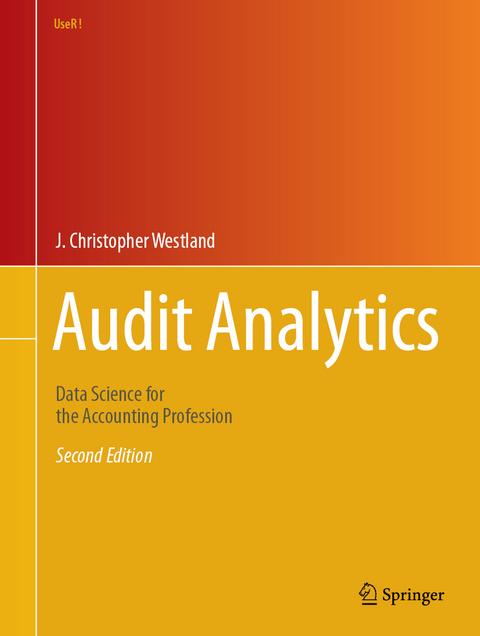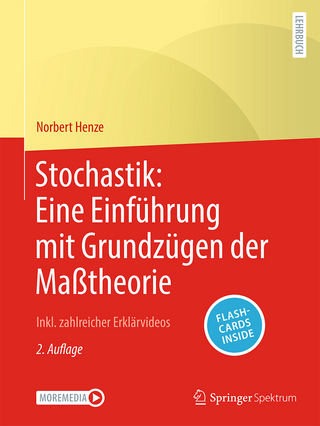
Audit Analytics
Springer International Publishing (Verlag)
978-3-031-47463-7 (ISBN)
This book, using R and RStudio, demonstrates how to render an audit opinion that is legally and statistically defensible; analyze, extract, and manipulate accounting data; build a risk assessment matrix to inform the conduct of a cost-effective audit program; and more.
Today, information technology plays a pivotal role in financial control and audit: most financial data is now digitally recorded and dispersed among servers, clouds and networks over which the audited firm has no control. Additionally, a firm's data-particularly in the case of finance, software, insurance and biotech firms-comprises most of the audited value of the firm. Financial audits are critical mechanisms for ensuring the integrity of information systems and the reporting of organizational finances. They help avoid the abuses that led to passage of legislation such as the Foreign Corrupt Practices Act (1977), and the Sarbanes-Oxley Act (2002).
Audit effectiveness has declined over the past two decades, as auditor skillsets have failed to keep up with advances in information technology. Information and communication technology lie at the core of commerce today and are integrated in business processes around the world. This book is designed to meet the increasing need of audit professionals to understand information technology and the controls required to manage it. This 2nd edition includes updated code and test. Machine learning, AI, and SEC's EDGAR data are also, improved and updated.
The material included focuses on the requirements for annual Securities and Exchange Commission audits (10-K) for listed corporations. These represent the benchmark auditing procedures for specialized audits, such as internal, governmental, and attestation audits. Many examples reflect the focus of the 2024 CPA exam, and the data analytics-machine learning approach will be central to the AICPA's programs, in the near future.
lt;p>J. Christopher Westland is Professor in the Department of Information & Decision Sciences at the University of Illinois, Chicago. He has professional experience in the US, as a certified public accountant and as a consultant in technology law in the US, Europe, Latin America and Asia.
He is the author of numerous academic papers and of seven books: Global Electronic Commerce (MIT Press 2000); Global Innovation Management (Palgrave Macmillan 2nd ed 2017); Red Wired: China's Internet Revolution (Marshall Cavendish, 2010); Structural Equation Modeling (Springer 2015); Financial Dynamics (Wiley 2003); Valuing Technology (Wiley 2002) and Audit Analytics: Data Science for the Accounting Profession (Springer 2020). He is the Editor-in-Chief of Electronic Commerce Research (Springer) and have served on editorial boards of several other information technology journals including Management Science, ISR, ECRA, IJEC, and others.
In 2012, he received High-Level Foreign Expert status in China under the 1000- Talents Plan and am currently Overseas Chair Professor at Beihang University. He advises on patent, valuation, and technology strategy for numerous technology firms.
1. Fundamentals of Auditing Financial Statements.- 2. Foundations of Audit Analytics.- 3. Analysis of Accounting Transactions.- 4. Risk Assessment and Planning.- 5. Analytical Review: Technical Analysis.- 6. Analytical Review: Intelligence Scanning.- 7. Design of Audit Programs.- 8. Interim Compliance Tests.- 9. Substantive Tests.- 10. Sarbanes-Oxley Engagements.- 11. Blockchains, Cybercrime and Forensics.- 12. Special Engagements: Forecasts and Valuation.- 13. Simulated Transactions for Auditing Service Organizations.
| Erscheinungsdatum | 06.04.2024 |
|---|---|
| Reihe/Serie | Use R! |
| Zusatzinfo | XIV, 470 p. 100 illus., 57 illus. in color. |
| Verlagsort | Cham |
| Sprache | englisch |
| Maße | 210 x 279 mm |
| Themenwelt | Mathematik / Informatik ► Mathematik ► Wahrscheinlichkeit / Kombinatorik |
| Wirtschaft ► Allgemeines / Lexika | |
| Schlagworte | Accounting • Artificial Intelligence • Auditing • Data Science • machine learning • Statistics |
| ISBN-10 | 3-031-47463-5 / 3031474635 |
| ISBN-13 | 978-3-031-47463-7 / 9783031474637 |
| Zustand | Neuware |
| Informationen gemäß Produktsicherheitsverordnung (GPSR) | |
| Haben Sie eine Frage zum Produkt? |
aus dem Bereich


